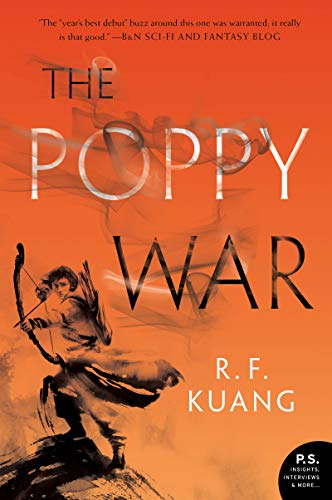The Poppy War series has generated a lot of chatter in a lot of different book communities, and for good reason: it’s a fantastically well-written and well-researched historical fantasy based on twentieth century Chinese military history. The series is a trilogy, with the first book, The Poppy War published in 2018, followed by The Dragon Republic (2019) and The Burning God (2020).
The series follows the main character, Fang Runin, a dark-skinned Southerner who aces the entrance exam to the country’s most elite military academy in the North. However, war with the Mugenese empire breaks out, and Rin must use her shamanic powers to save her country.
There’s a lot to love about this series. The first thing that I found amazing was the sheer verisimilitude; the author has done so much research, and it’s obvious that Kuang has thought in depth about the material that she’s conveying. Rin isn’t a perfect character, and neither are any of the others. All the characters are deeply traumatized by the atrocities they had committed against them and those that they themselves have committed, and their trauma is messy. The characters are deeply flawed, but they’re still worth fighting for, and that’s immensely refreshing when many books fail to portray their characters as truly flawed individuals.
I also really loved the relationships between characters. While there are some flutterings of vague romantic attraction, the strongest relationship that Rin has in the books is a platonic best friend. Our culture and our media often portrays romantic relationships as the best and most fulfilling relationships, and I appreciated being able to read something without a significant romantic subplot.
I would definitely recommend The Poppy Wars to anyone with an interest in high fantasy or history, though I’d also encourage potential readers to do some research regarding the content, since there are some very dark moments given that the series focuses on war and its aftermath. Kuang writes with such clarity, precision, and elegance that the story shines and illuminates a history that’s been ignored for far too long.

